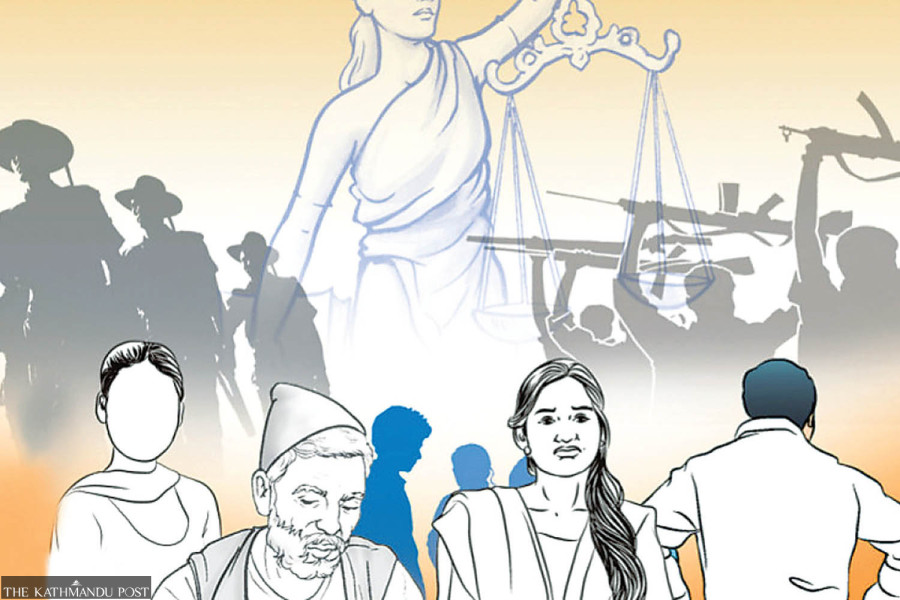National
Rights commission on board on transitional justice appointments
Work stalled by National Human Rights Commission’s reluctance to send a representative to the recommendation committee goes ahead after Parliament passes amendment bill.
Binod Ghimire
The passage of the bill to amend the Enforced Disappearances Enquiry, Truth and Reconciliation Commission Act from the federal parliament has cleared the way for the recommendation of office bearers for the two commissions that look into insurgency-era cases of human rights violations.
A Cabinet meeting on April 12 constituted a five-member committee led by Om Prakash Mishra, a former chief justice, to nominate candidates for the Truth and Reconciliation Commission and the Commission of Investigation on Enforced Disappeared Persons. The government picked four members, and the National Human Rights Commission chairperson or any member he recommends is also on the panel.
The constitutional rights watchdog, however, had been refusing to send its representative, demanding a time-bound commitment from the government to endorse a bill to amend the Enforced Disappearance Enquiry, Truth and Reconciliation Commission Act. As the bill gets through both Houses, the commission prepares to send its representative to the Mishra-led committee.
“Amendment to the Act was our pre-condition to sending a representative to the recommendation committee. As it has been done, the commission will decide on this very soon,” Surya Dhungel, a member of the commission, told the Post.
Not a single meeting of the Mirsha-led panel has been held, amid the commission's reluctance to send its member, in the four months since its constitution.
“We have not sat even once so far. I believe the committee will commence its work as the National Human Rights Commission will be sending its representative,” Stella Tamang, a member of the committee, told the Post.
The committee was constituted in May amid reservations from the conflict-era victims of human rights violations and the human rights defenders who demanded an amendment to the Act before selecting the office bearers. The government, however, said the formation of the committee was necessary as per the Supreme Court’s March 12 order to the government to select office bearers for the two commissions within a month.
The court had asked the government to constitute task forces within the commissions to conduct preliminary investigations into the victims’ complaints until the office bearers were appointed.
Following the court’s order, the victims and human rights defenders demanded the government and the parties endorse the legal amendments by the top court’s deadline before starting the selection process. However, the amendment bill couldn’t be endorsed within the deadline, prompting the government to form a committee based on the existing law.
Following the committee’s formation, the victims and human rights defenders requested the government to halt the selection process until the Act was amended. They also urged the national rights watchdog to refrain from sending its representative.
The two commissions have been defunct since July, 2022, when the government decided to extend their terms without retaining their chairmen and members. The government claimed the bill to amend the transitional justice law would be endorsed by October 2022, and the appointments made based on the revised Act.
However, it took over two years for the federal parliament to endorse the bill. The victims and human rights defenders are closely watching who will be appointed to the commissions.
The Truth Commission has received 63,718 complaints, while the commission on disappearances is sitting on around 2,400 cases. The new teams will have four years to accomplish their jobs, though there are provisions for their extension if they are not accomplished within the given period. The commissions that were formed in 2015 have done nothing other than collect complaints and conduct preliminary investigations in some of them.




 18.12°C Kathmandu
18.12°C Kathmandu














